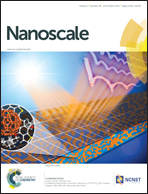Silver nanoparticles impede phorbol myristate acetate-induced monocyte–macrophage differentiation and autophagy
Abstract
Monocytes/macrophages are important constituents of the innate immune system. Monocyte–macrophage differentiation is not only crucial for innate immune responses, but is also related to some cardiovascular diseases. Silver nanoparticles (AgNPs) are one of the most widely used nanomaterials because of their broad-spectrum antimicrobial properties. However, the effect of AgNPs on the functions of blood monocytes is scarcely reported. Here, we report the impedance effect of AgNPs on THP-1 monocyte differentiation, and that this effect was mediated by autophagy blockade and lysosomal impairment. Firstly, AgNPs inhibit phorbol 12-myristate 13-acetate (PMA)-induced monocyte differentiation by down-regulating both expression of surface marker CD11b and response to lipopolysaccharide (LPS) stimulation. Secondly, autophagy is activated during PMA-induced THP-1 monocyte differentiation, and the autophagy inhibitor chloroquine (CQ) can inhibit this process. Thirdly, AgNPs block the degradation of the autophagy substrate p62 and induce autophagosome accumulation, which demonstrates the blockade of autophagic flux. Fourthly, lysosomal impairments including alkalization and decrease of lysosomal membrane stability were observed in AgNP-treated THP-1 cells. In conclusion, we demonstrate that the impedance of monocyte–macrophage differentiation by AgNPs is mediated by autophagy blockade and lysosomal dysfunction. Our results suggest that crosstalk exists in different biological effects induced by AgNPs.


 Please wait while we load your content...
Please wait while we load your content...